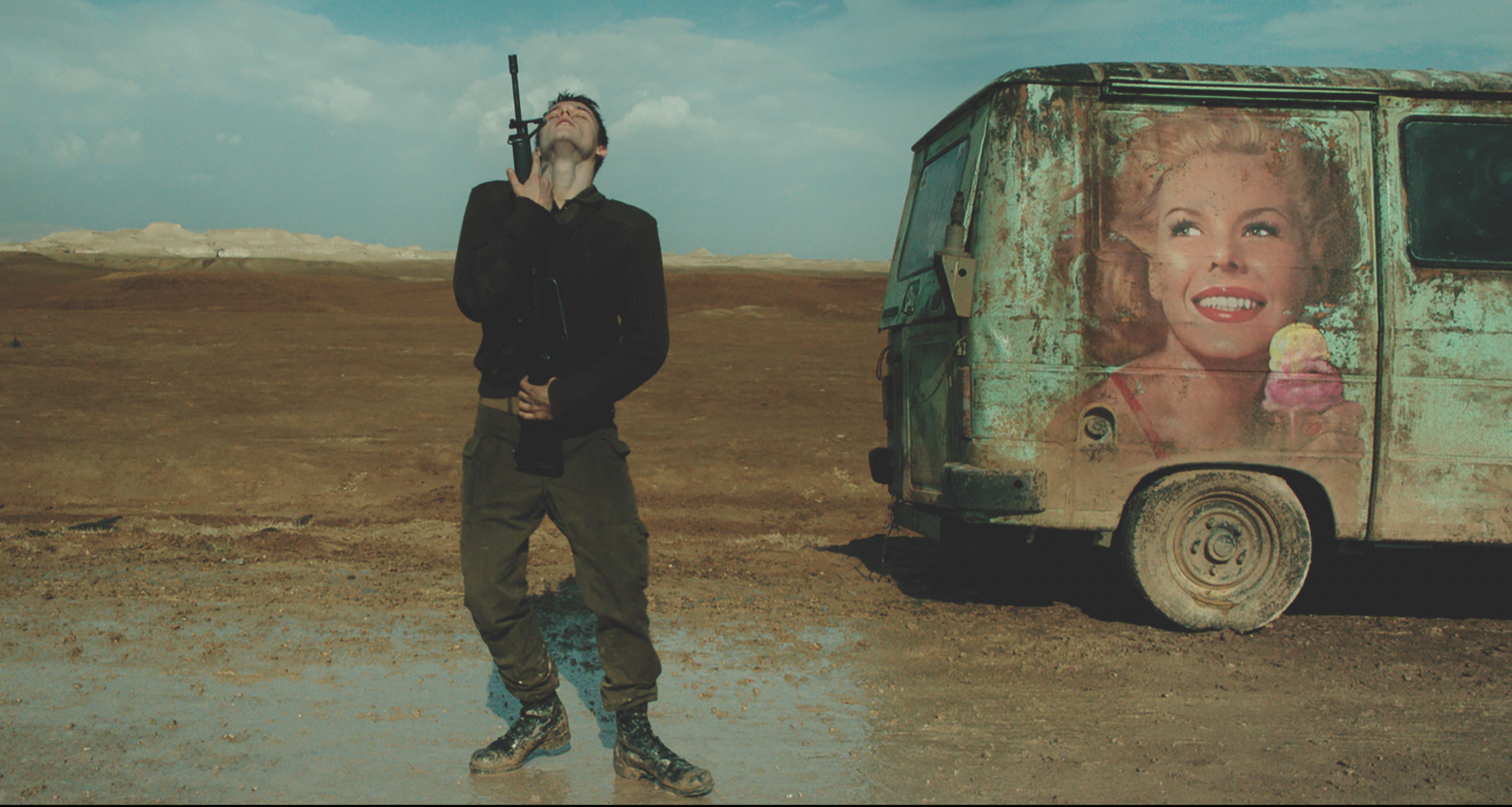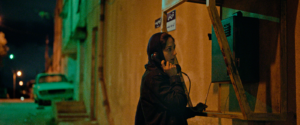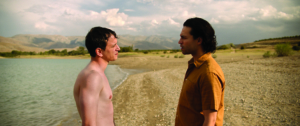At the Ophir Awards – the Israeli counterpart of the Oscars – in September, Samuel Maoz’s Foxtrot (2017) won eight statues, including Best Film, Best Director, Best Cinematography, and a Best Actor award for lead Lior Ashkenazi. It also won the Silver Lion (Grand Jury Prize) at the Venice Film Festival, and was shortlisted for the Best Foreign Language Oscar, though it didn’t make the final five nominees. In spite of all this acclaim – or, if you’re feeling cynical, because of – Foxtrot was hugely controversial in its homeland. Due to its critical depiction of life in the Israel Defense Forces (IDF), it became a magnet for criticism from right-wing politicians.
Israeli minister of culture Miri Regev – a former IDF spokesperson – decreed Foxtrot a work ‘of self-flagellation and cooperation with the anti-Israel narrative’[1]Miri Regev, quoted in Jessica Steinberg, ‘Acclaim for Controversial Film Puts Regev in Whiskey Tango Foxtrot Situation’, The Times of Israel, 11 September 2017, <https://www.timesofisrael.com/acclaim-for-controversial-film-puts-regev-in-whiskey-tango-foxtrot-situation/>, accessed 21 May 2018. and accused Maoz of ‘contributing to the incitement of the younger generation while lying under the guise of art’.[2]Miri Regev, quoted in Anshel Pfeffer, ‘Venice Award Reignites Foxtrot Controversy’, The Jewish Chronicle, 13 September 2017, <https://www.thejc.com/news/israel/venice-award-reignites-foxtrot-controversy-1.444240>, accessed 21 May 2018. Israel’s embassy in Paris sent no representatives to a local Israeli film festival held in March because Foxtrot was screening.[3]Bethan McKernan, ‘Foxtrot: Israel Boycotts Own Film Festival in Paris over Controversial Movie’, The Independent, 14 February 2018, <https://www.independent.co.uk/news/world/middle-east/israel-boycott-own-film-festival-foxtrot-paris-samuel-moaz-miri-regev-a8210096.html>, accessed 21 May 2018. As always, what angered the powers that be wasn’t just the act of critiquing Israeli military policy, or the overseas embrace of a film doing so, but that Foxtrot, like most Israeli films, had received state funding. But Maoz has offered that his criticisms have come ‘out of love’[4]Samuel Maoz, quoted in Kees Driessen, ‘Samuel Maoz on Foxtrot’, International Film Festival Rotterdam website, 11 April 2018, <https://iffr.com/en/blog/samuel-maoz-on-foxtrot>, accessed 21 May 2018. and posited that societies suffer when nationalism becomes a tool for shutting down debate: when ‘critics [are] considered to be traitors, you have no chance of rising’.[5]Samuel Maoz, quoted in Bilal Qureshi, ‘In Foxtrot, a Filmmaker Captures the “Bleeding Soul of Israeli Society”’, NPR, 3 March 2018, <https://www.npr.org/2018/03/03/590229511/in-foxtrot-a-filmmaker-captures-the-bleeding-soul-of-israeli-society>, accessed 21 May 2018.
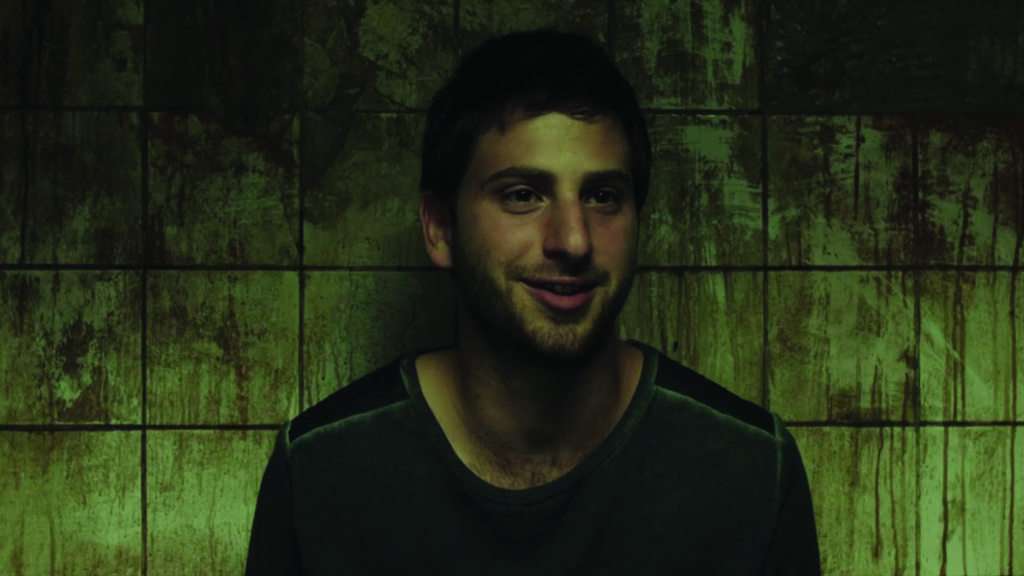
Maoz first found acclaim with his debut feature, Lebanon (2009). The film depicts Israeli soldiers fighting in the 1982 Lebanon War, with the action told entirely from their perspective: never leaving the tank they pilot, the outside world seen only through a gun sight. This unique viewpoint represented a personal one: Maoz had served ‘as a 20-year-old gunner in one of the first Israeli tanks to enter Lebanon’,[6]Samuel Maoz, quoted in Neta Alexander, ‘Interview: Samuel Maoz’, Film Comment, 22 December 2017, <https://www.filmcomment.com/blog/interview-samuel-maoz/>, accessed 21 May 2018. and he can’t forget the moment he was ordered to fire on a truck that turned out to be a civilian vehicle.[7]Samuel Maoz, quoted in Stephen Applebaum, ‘Samuel Maoz: Foxtrot’s Director Interviewed’, The Jewish Chronicle, 4 October 2017, <https://www.thejc.com/foxtrot-1.445593>, accessed 21 May 2018. Decades later, the director made a film based on these experiences as a way to work through their lingering ramifications: ‘[Lebanon] helped me to try and understand what it means to kill other human beings […] taking lives is an excruciating burden I am forced to live with.’[8]Maoz, quoted in Alexander, op. cit.
After Lebanon was released, Maoz says, he was ‘overwhelmed’ by the accounts of wartime horror told to him by other Israelis with post-traumatic stress disorder.[9]ibid. These stories, and Maoz’s own, didn’t just fit the clichés of the spooked, shell-shocked, nightmare-troubled vet,[10]E Nina Rothe, ‘Talking Foxtrot with Lior Ashkenazi, Sarah Adler and Samuel Maoz in Venice’, The Huffington Post, 2 September 2017, <https://www.huffingtonpost.com/entry/talking-foxtrot-with-lior-ashkenazi-sarah-adler_us_59aa871fe4b0d0c16bb52521>, accessed 21 May 2018. but also showed something more subtle, seeping into lives that are otherwise happy, well adjusted, successful. ‘There are endless variations of my story and the kind of pain and guilt it germinates,’ he offers.[11]Maoz, quoted in Alexander, op. cit.
Through the character of Michael, Foxtrot offers a study of that generation: as sons, then fathers; the boys once sent away, now the powerful men in society. On the surface, he is a success, dwelling high in an ivory-tower apartment. But, beneath the surface, there is darkness.
One of those variations is, indeed, seen in Foxtrot. Maoz’s second feature serves as another study of the after-effects of war – not a surprise for a director who says that his ‘therapeutic process includes writing, filmmaking, and a healthy dose of repression’.[12]ibid. The film is, at its core, a fatherson story: Michael Feldmann (Ashkenazi) is a Tel Aviv–based architect and military vet whose son, Jonathan (Yonatan Shiray), is serving in the IDF. It’s a rite of passage, not just for this father and son, but for generations in Israel: mandatory military service meaning that, as ‘[e]veryone from the highest classes to the lowest classes’ has been in the army, the army reflects Israeli society.[13]See Qureshi, op. cit. There’s an added generation in Foxtrot’s drama: Michael’s mother (Karin Ugowski) is a Holocaust survivor who, descending into dementia in her dotage, occasionally lapses into speaking in German. This, too, has a personal dimension: Maoz’s own mother was a Holocaust survivor, and, growing up, he was reminded of this constantly.[14]Applebaum, op. cit. For the auteur – for his generation – that meant that he ‘couldn’t complain about anything’ and was, thus, indoctrinated into repression: the soldiers who fought in Lebanon unable to admit to pain after the war because their suffering paled in comparison to those who’d lived through the Shoah. In that repression, they ‘became a second generation of traumatized victims’.[15]Samuel Maoz, quoted in Eric Kohn, ‘How Foxtrot Angered Israel’s Minister of Culture – and Became the Country’s Oscar Submission, Anyway’, IndieWire, 5 December 2017, <http://www.indiewire.com/2017/12/foxtrot-samuel-maoz-interview-israeli-oscars-1201904265/>, accessed 21 May 2018.
Through the character of Michael, Foxtrot offers a study of that generation: as sons, then fathers; the boys once sent away, now the powerful men in society. On the surface, he is a success, dwelling high in an ivory-tower apartment. But, beneath the surface, there is darkness – manifested in, say, the way he kicks the family dog. This is something recognised by his children, Jonathan and Alma (Shira Haas), and wife, Dafna (Sarah Adler). ‘Your whole life – your office, us, the fancy car and that “count on me” impression you try hard to display – it’s all there just to hide your secret, your weakness,’ Dafna says. ‘From the outside, everything seems to be fine, but deep inside, his soul is bleeding,’ Maoz asserts.[16]ibid. This kind of repression, the pretence of everything being fine when it’s not, is something that infects the whole family: ‘They have […] the best life you could have,’ Maoz offers. ‘But deep inside, there’s a word for it in Hebrew – it’s srita: They have a scratch in their soul.’[17]Maoz, quoted in Qureshi, op. cit. In this way, they’re a clear symbol for a grander social climate: troubling traumas lurking beneath the facade of wealth and prosperity, Foxtrot a film that ‘presents a mirror for this radical split in [Israeli] society’.[18]Maoz, quoted in Kohn, op. cit.
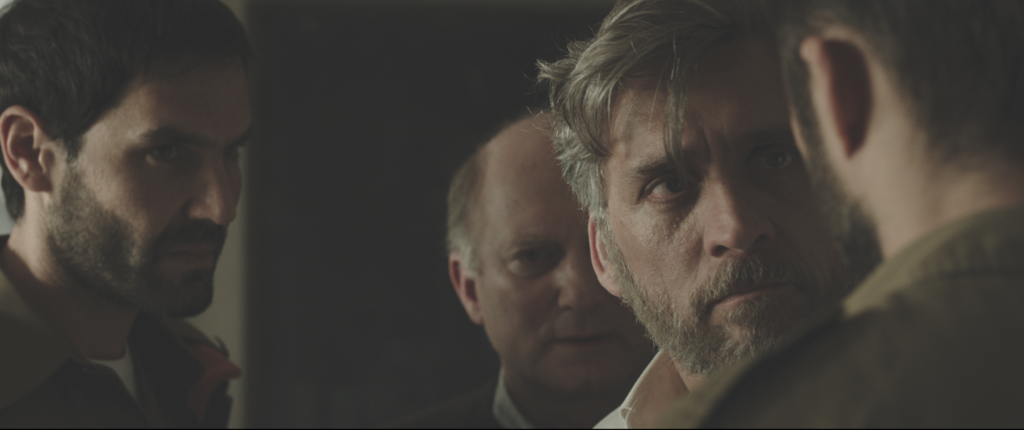
Foxtrot takes its title from a remote outpost depicted in the film, named from the NATO phonetic alphabet. But a foxtrot is also a dance, and, within the drama, this too is evoked: danced by Jonathan, holding his assault rifle as a partner, then, later, by his grieving parents. The foxtrot is a dance that goes in a circle, ending back in the same place; it’s a neat metaphor for the experiences of the filmmaker, who identifies the ‘dance of [the] traumatic circle’[19]Maoz, quoted in Alexander, op. cit. and how the cycles of service, trauma and repression come from living in a country constantly at war. A key movement in the foxtrot dance is also known as the ‘three-step’, which echoes the three distinct acts of the movie. These three acts are, essentially, a portrait of a traumatised family, embodied by the father, then the son, then the mother. ‘I told myself that the first sequence should shock and shake, the second should hypnotise, and the third should be moving,’ Maoz says.[20]Samuel Maoz, quoted in Kaleem Aftab, ‘Samuel Maoz • Director’, Cineuropa, 6 September 2017, <http://cineuropa.org/it.aspx?t=interview&l=en&did=334044>, accessed 21 May 2018.
The opening act shocks by beginning with that great parental nightmare: a knock at the door, with uniformed officials standing on the other side. Michael and Dafna are told by soldiers that Jonathan has died in service. Dafna faints, and is sedated. Michael deals with the military officers, whose forcible care – demands to hydrate, commandeering of funeral arrangements and death notices, offers to help contact family and friends – feels a little like railroading. Maoz conveys this by keeping the camera on Ashkenazi’s face, the insistent voices of the soldiers – peripheral figures in this portrait of parental grief – heard from out of frame. In the wake of the news, Michael remains largely silent, save for troubling outbursts: kicking the dog, masochistically scalding his hand under hot water, smashing a glass on the floor.
The foxtrot is a dance that goes in a circle, ending back in the same place; it’s a neat metaphor for the experiences of the filmmaker, who identifies the ‘dance of [the] traumatic circle’ and how the cycles of service, trauma and repression come from living in a country constantly at war.
At the end of the first act – a solemn, stark, harrowing study of grief – the soldiers return, explaining that there’s been a clerical oversight: the dead officer was a different Jonathan Feldmann, all this grief actually the burden of another family. Maoz was inspired to write this, again, by personal experience. When his daughter was a teenager, she was constantly sleeping in, missing her bus, then taking a taxi to get to school. Worried that it ‘was affecting her education’, Maoz recounts, one morning, he asked her to catch the bus.[21]ibid. When he heard that a bus on her line had been blown up in a suicide bombing, leaving dozens dead, he was thrown into a nightmare of horror, panic and guilt. Calls to her phone didn’t help: because of the blast, the network in that area was down. Eventually, she came back home, having just missed the blown-up bus. Maoz calls it ‘the worst hour of [his] life, worse than the entire Lebanon war’, and he leans on it, dramatically, as both relatable drama and something getting at ‘the gap between things we control and those that are beyond our control’.[22]Samuel Maoz, quoted in Matt Grobar, ‘Foxtrot Director Samuel Maoz Contemplates “the Worst Hour” of His Life – Sundance Studio’, Deadline Hollywood, 24 January 2018, <http://deadline.com/2018/01/foxtrot-samuel-maoz-lior-ashkenazi-sundance-video-interview-1202263467>, accessed 21 May 2018.
The second act begins with a smash cut from the high drama of tragedy to the drollery of a camel walking through a roadblock gate in the middle of nowhere. This is the remote outpost that Jonathan is stationed at. Though Michael thinks it ‘couldn’t be more than an hour away’ from Tel Aviv, it’s clearly another world, a forgotten dot in the middle of the desert. Maoz describes himself as a ‘visual thinker’, with ideas ‘always created in [his] mind first as an image’,[23]Maoz, quoted in Alexander, op. cit. and admits that he thinks of ‘text as the enemy’, hoping to ‘manage without it’.[24]Maoz, quoted in Driessen, op. cit. And so, in its second act, Foxtrot moves towards the purely visual, if not the absurd. This also evokes the character at its centre, a talented comic artist who spends his downtime drawing. ‘Jonathan’s sequence,’ Maoz says, ‘floats a few inches above the ground like the inner world of an artist caught up in dreams’.[25]Maoz, quoted in Aftab, op. cit.
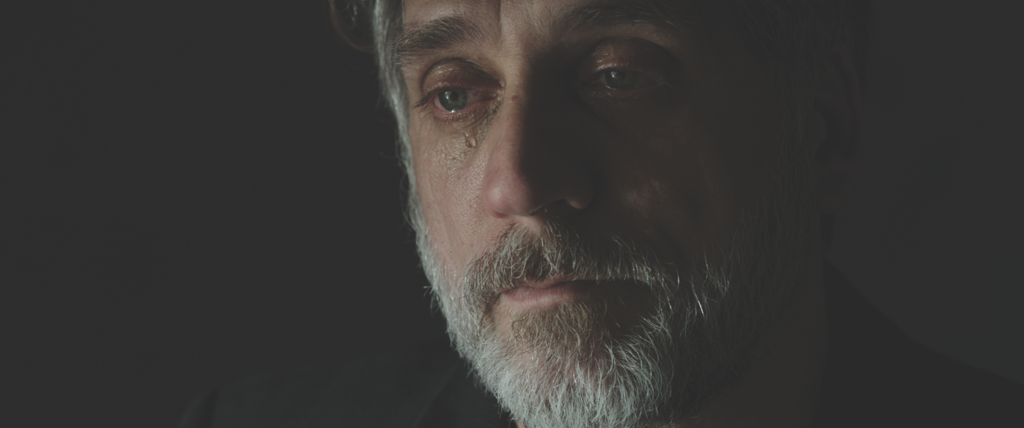
This no-man’s-land lingers, vivid and unreal, as a symbolic realm, the four soldiers serving here living in a shipping crate slowly sinking into the mud. ‘You don’t have to be a genius to understand that this isn’t a specific roadblock and a specific reality,’ Maoz says. ‘The roadblock is a microcosm of […] an anxious society that has its perception distorted by a terrible, past trauma.’[26]Samuel Maoz, quoted in Anne Joseph, ‘Samuel Maoz Choreographs Israel’s Cycle of Trauma in Foxtrot’, The Times of Israel, 15 October 2017, <https://www.timesofisrael.com/samuel-maoz-choreographs-israels-cycle-of-trauma-in-foxtrot/>, accessed 21 May 2018. This anxiety, this distorted perception, comes to bear in a moment of tragedy that recalls Maoz’s memories of his own military service, the blood still on his hands. A Mercedes carrying four good-looking, wasted Palestinian youths is stopped at the checkpoint. When a beer can drops out of the car – at the end of a long, slow scene that stacks up the random moments of fate that lead to a tragic event – the soldier examining the car believes it to be a grenade; Jonathan reflexively opens fire, killing the innocent travellers inside. In the scene that provoked the ire of Israeli conservatives, these deaths are then covered up by the military – the car, and its passengers, dumped deep beneath the desert. ‘The burial of the Mercedes expresses,’ Maoz says, ‘repression and denial. We prefer to bury the truth, rather than confront it and ask ourselves penetrating questions.’[27]Maoz, quoted in Driessen, op. cit.
You get the sense that Maoz is confronting himself, and the members of his generation, when the third act begins with an animated movement – essentially, the story of Michael’s life told through his son’s eyes, via his son’s pen. In a striking moment at the centre of its previous act, Maoz invoked his theme of generations by having Jonathan tell a story about his father in early adolescence: trading his family’s precious heirloom, a Bible, for a girlie mag, then handing down that mag, years later, to Jonathan, no longer passing down a weighty religious totem, but a rite of coming-of-age passage (the visual of the girlie pin-up recurs in drawings, and in a tattoo Jonathan draws on a fellow soldier’s neck). The animated sequence is a sister narrative to this story, but it’s far darker, more unforgiving: his father depicted with a black X across his face – a visual riff on the Xs covering a pin-up’s breasts – to convey Michael’s emotional repression, his cynicism. ‘At night, while he was asleep,’ the narration ends, ‘little Michael would come along to help [grown-up] Michael shed a tear.’
From there, the real Michael’s tears drop onto the page, the third act mired in real grieving. Dafna is making a twentieth-birthday cake for their son, who – we intuit through their suffering – has really died. The last drawing in Jonathan’s journal shows a bulldozer lifting up a car; his parents think it’s symbolic, about their relationship (one the car, the other the bulldozer), when really it depicts a crime, comes as scribbled confession, a totem of guilt. This is the cycle of trauma and repression continuing – something entrenched when the film, near its end, shows the separated, devastated parents finding respite in a final foxtrot, danced slow and sad.
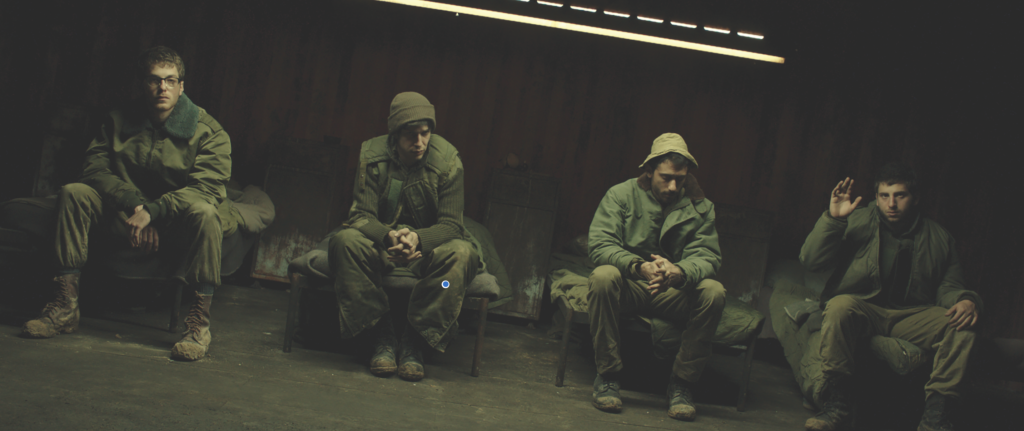
The emotional journey of these parents – they’re told their son is dead, then that he’s alive, then he dies before he can make it back home – is its own three-step dance. There’s also a shadow drama existing beneath it: the story from the other side of the tragic shooting, with the parents of the disappeared Palestinian kids denied, thereafter, confirmation of their deaths, never finding closure. Maoz compares his story to ‘a Greek tragedy in which the hero creates his own punishment’ – a father sending his son away to war, handing his life over to fate – and, indeed, calls it ‘a philosophical puzzle’ about ‘the very concept of fate’. Foxtrot’s conclusion is that ‘fate cannot be changed, not because it’s divine but because of the nature of Israeli men and women […] a collective that is stuck in trauma’.[28]Maoz, quoted in Joseph, op. cit. Visually, Maoz summons the nature of fate by recurringly employing eye-of-god overheads, whether inside the family home (at a kitchen table, in the bathroom, in the toilet) or out in the wilderness. He does this to evoke not merely the divine, but the social forces beyond our characters’ control. ‘Looking from above, Michael or the soldiers are tiny, meaningless chess pieces controlled by an invisible hand,’ Maoz says, ‘whether it is the gods or the Israeli political leadership.’[29]Maoz, quoted in Alexander, op. cit.
Endnotes
| 1 | Miri Regev, quoted in Jessica Steinberg, ‘Acclaim for Controversial Film Puts Regev in Whiskey Tango Foxtrot Situation’, The Times of Israel, 11 September 2017, <https://www.timesofisrael.com/acclaim-for-controversial-film-puts-regev-in-whiskey-tango-foxtrot-situation/>, accessed 21 May 2018. |
|---|---|
| 2 | Miri Regev, quoted in Anshel Pfeffer, ‘Venice Award Reignites Foxtrot Controversy’, The Jewish Chronicle, 13 September 2017, <https://www.thejc.com/news/israel/venice-award-reignites-foxtrot-controversy-1.444240>, accessed 21 May 2018. |
| 3 | Bethan McKernan, ‘Foxtrot: Israel Boycotts Own Film Festival in Paris over Controversial Movie’, The Independent, 14 February 2018, <https://www.independent.co.uk/news/world/middle-east/israel-boycott-own-film-festival-foxtrot-paris-samuel-moaz-miri-regev-a8210096.html>, accessed 21 May 2018. |
| 4 | Samuel Maoz, quoted in Kees Driessen, ‘Samuel Maoz on Foxtrot’, International Film Festival Rotterdam website, 11 April 2018, <https://iffr.com/en/blog/samuel-maoz-on-foxtrot>, accessed 21 May 2018. |
| 5 | Samuel Maoz, quoted in Bilal Qureshi, ‘In Foxtrot, a Filmmaker Captures the “Bleeding Soul of Israeli Society”’, NPR, 3 March 2018, <https://www.npr.org/2018/03/03/590229511/in-foxtrot-a-filmmaker-captures-the-bleeding-soul-of-israeli-society>, accessed 21 May 2018. |
| 6 | Samuel Maoz, quoted in Neta Alexander, ‘Interview: Samuel Maoz’, Film Comment, 22 December 2017, <https://www.filmcomment.com/blog/interview-samuel-maoz/>, accessed 21 May 2018. |
| 7 | Samuel Maoz, quoted in Stephen Applebaum, ‘Samuel Maoz: Foxtrot’s Director Interviewed’, The Jewish Chronicle, 4 October 2017, <https://www.thejc.com/foxtrot-1.445593>, accessed 21 May 2018. |
| 8 | Maoz, quoted in Alexander, op. cit. |
| 9 | ibid. |
| 10 | E Nina Rothe, ‘Talking Foxtrot with Lior Ashkenazi, Sarah Adler and Samuel Maoz in Venice’, The Huffington Post, 2 September 2017, <https://www.huffingtonpost.com/entry/talking-foxtrot-with-lior-ashkenazi-sarah-adler_us_59aa871fe4b0d0c16bb52521>, accessed 21 May 2018. |
| 11 | Maoz, quoted in Alexander, op. cit. |
| 12 | ibid. |
| 13 | See Qureshi, op. cit. |
| 14 | Applebaum, op. cit. |
| 15 | Samuel Maoz, quoted in Eric Kohn, ‘How Foxtrot Angered Israel’s Minister of Culture – and Became the Country’s Oscar Submission, Anyway’, IndieWire, 5 December 2017, <http://www.indiewire.com/2017/12/foxtrot-samuel-maoz-interview-israeli-oscars-1201904265/>, accessed 21 May 2018. |
| 16 | ibid. |
| 17 | Maoz, quoted in Qureshi, op. cit. |
| 18 | Maoz, quoted in Kohn, op. cit. |
| 19 | Maoz, quoted in Alexander, op. cit. |
| 20 | Samuel Maoz, quoted in Kaleem Aftab, ‘Samuel Maoz • Director’, Cineuropa, 6 September 2017, <http://cineuropa.org/it.aspx?t=interview&l=en&did=334044>, accessed 21 May 2018. |
| 21 | ibid. |
| 22 | Samuel Maoz, quoted in Matt Grobar, ‘Foxtrot Director Samuel Maoz Contemplates “the Worst Hour” of His Life – Sundance Studio’, Deadline Hollywood, 24 January 2018, <http://deadline.com/2018/01/foxtrot-samuel-maoz-lior-ashkenazi-sundance-video-interview-1202263467>, accessed 21 May 2018. |
| 23 | Maoz, quoted in Alexander, op. cit. |
| 24 | Maoz, quoted in Driessen, op. cit. |
| 25 | Maoz, quoted in Aftab, op. cit. |
| 26 | Samuel Maoz, quoted in Anne Joseph, ‘Samuel Maoz Choreographs Israel’s Cycle of Trauma in Foxtrot’, The Times of Israel, 15 October 2017, <https://www.timesofisrael.com/samuel-maoz-choreographs-israels-cycle-of-trauma-in-foxtrot/>, accessed 21 May 2018. |
| 27 | Maoz, quoted in Driessen, op. cit. |
| 28 | Maoz, quoted in Joseph, op. cit. |
| 29 | Maoz, quoted in Alexander, op. cit. |
